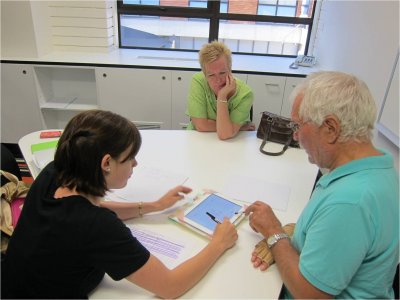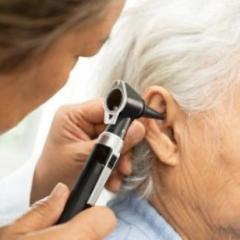
Sufferers of strokes, brain injuries and brain cancers will benefit from new research by The University of Queensland which has revealed a more effective therapy for language disorders.
UQ School of Health and Rehabilitation Sciences PhD candidate Jade Dignam said although highly intensive aphasia treatment practices are becoming more commonly recommended by clinicians; findings revealed distributed speech therapy is better long-term.
“Currently some studies suggest intensive therapy is best, however we found therapy spread over a longer period gained better results,” Ms Dignam said.
“The study revealed six hours per week of therapy distributed over eight weeks achieved significantly greater improvements on a picture-naming task than 16 hours per week of intensive therapy over three weeks.”
More than 80,000 Australians are affected by aphasia, a currently incurable language disorder that can affect a person’s ability to talk, read, write and understand the spoken word, which can occur after stroke, traumatic brain injury, or brain cancer.
Participants’ language, communication and quality of life were tested.
“Some of the skills tested included rating how well a person could join in a conversation and talk about their feelings,” Ms Dignam said.
“This tested their ‘real-life’ communication skills, whereas ‘quality of life’ tests looked at how much aphasia impacted the person’s life, such as impact on relationships, personal confidence, activities and work.”
The study included 34 adults with aphasia (more than four months post stroke), who all received 48 hours of impairment, functional, computer, and group-based aphasia therapy, delivered either intensively over three weeks or more distributed over eight weeks.
The therapy program developed by UQ is titled Aphasia Language Impairment and Functioning Therapy (Aphasia LIFT).
The outcomes of the research will help to provide clinicians and service providers with more effective and efficient options to improve treatment models and services for people with aphasia.
“We hope that this research will give people with aphasia a choice about which type of therapy, whether it be intensive or distributed, would best suit them.
“Aphasia sufferers often have difficulty communicating for years after a stroke and because there is currently no cure it is important we find more efficient ways to treat aphasia.”
The study Intensive Versus Distributed Aphasia Therapy: A Nonrandomized, Parallel-Group, Dosage-Controlled Studywas published online in Stroke recently.
The study was supported by the National Health and Medical Research Council Centre of Clinical Research Excellence in Aphasia Rehabilitation, a Royal Brisbane & Women's Hospital Foundation grant, and a Speech Pathology Australia postgraduate research grant.
Media: PhD Candidate Jade Dignam +617 3346 6110, j.dignam@uq.edu.au; UQ Communications Kirsten O’Leary +617 412 307 594, k.oleary@uq.edu.au.



